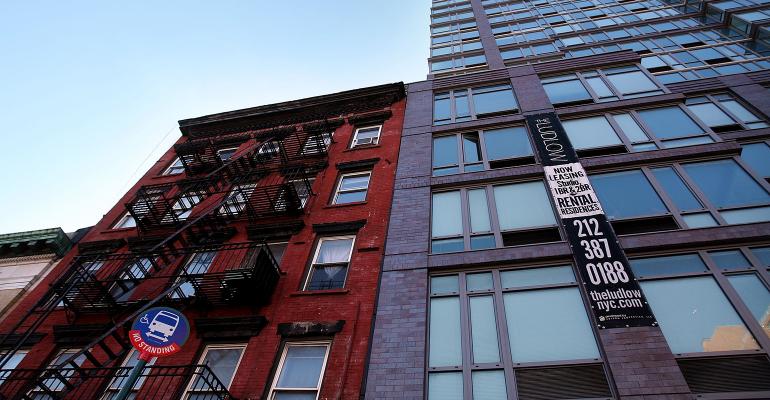(Bloomberg) --New York’s sweeping rewrite of rent stabilization laws could pose a credit risk to lenders that finance capital improvements to regulated apartment properties, according to a report today by Fitch Ratings.
The new state laws severely curtail landlords’ abilities to raise rents on stabilized units, and also put a cap on how much they may recoup for improvements they make to their buildings. Owners who make significant repairs won’t be able to raise rents by more than 2%. That’s down from 6% before the laws were passed last week.
“Absent significant creditor protections, exposure to such loans is viewed as incrementally credit negative,” Fitch said.
Fitch didn’t name specific lenders that would be hurt. In a separate report Monday, Wedbush analyst Peter Winter cut his earnings per share and lending forecasts for New York Community Bancorp and Signature Bank. The biggest risks are in loans for acquisition, development and construction, as those tend to be underwritten based on future, not historical, net operating income.
Stricter limits on rent growth probably will lower property values for rent-stabilized buildings, as fewer investors would be interested in buying them, Fitch said. That value decline poses a further risk for "highly leveraged" borrowers who will be unable to refinance their loans once they’re due, Fitch said.
Such refinancing risks to banks would “manifest over time” rather than immediately, as multifamily loans have a duration of about five to seven years, according to Fitch.
--With assistance from Felice Maranz.
To contact the reporter on this story: Oshrat Carmiel in New York at [email protected]. To contact the editors responsible for this story: Debarati Roy at [email protected] Rob Urban
© 2019 Bloomberg L.P.





